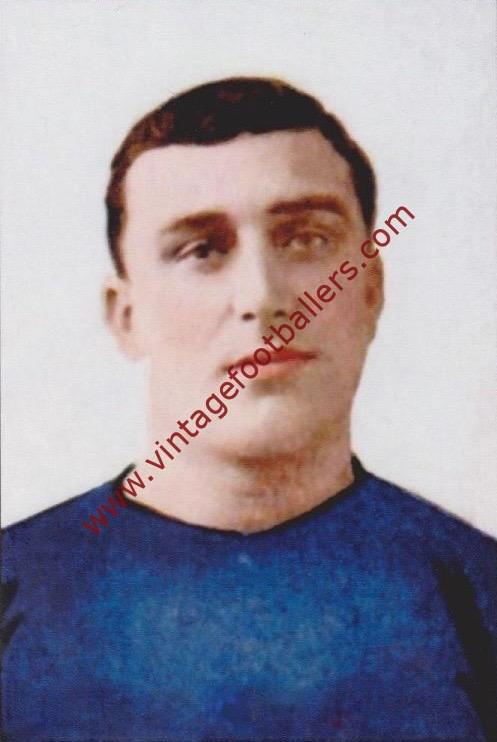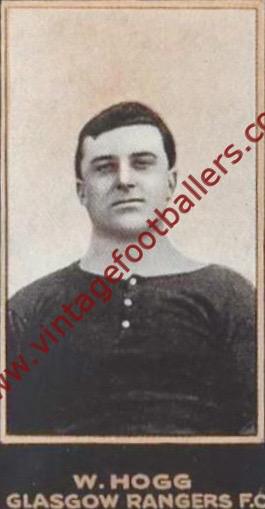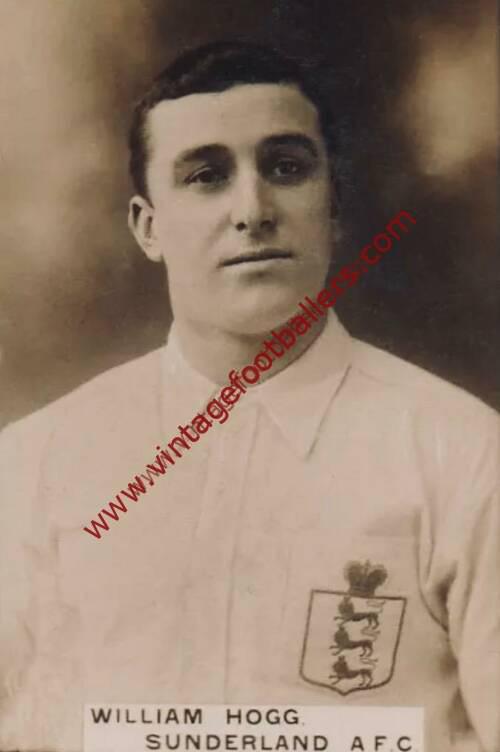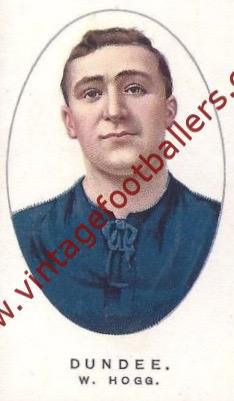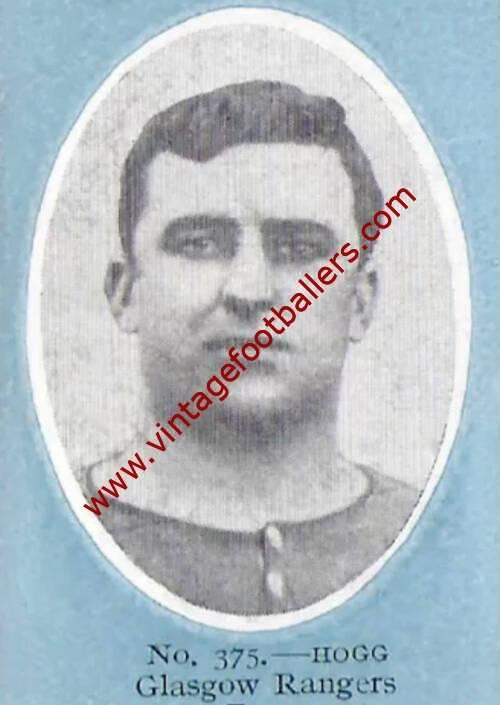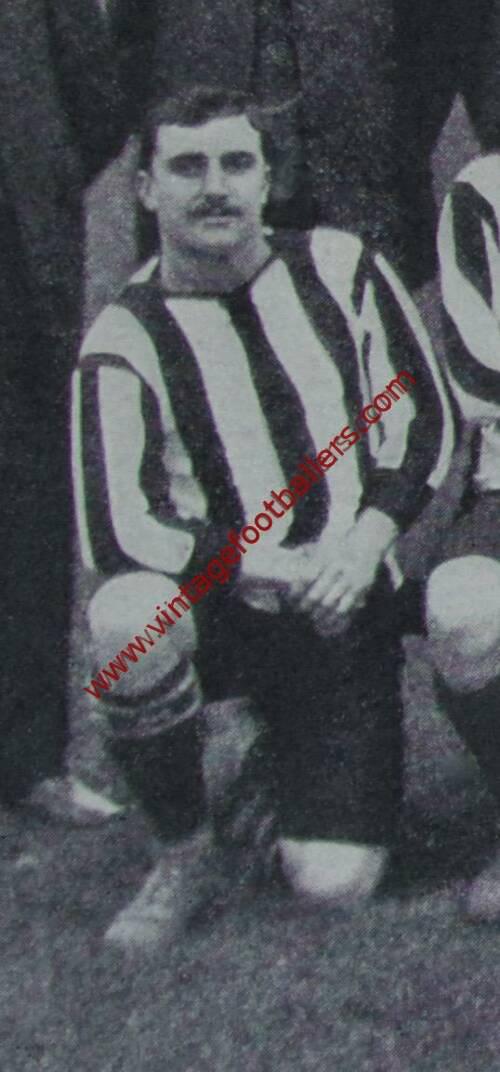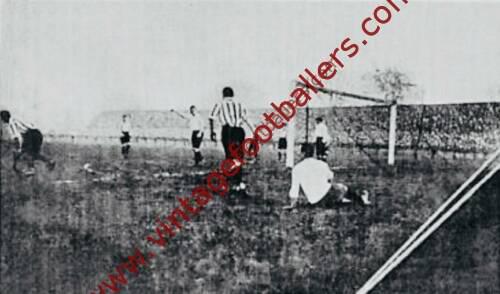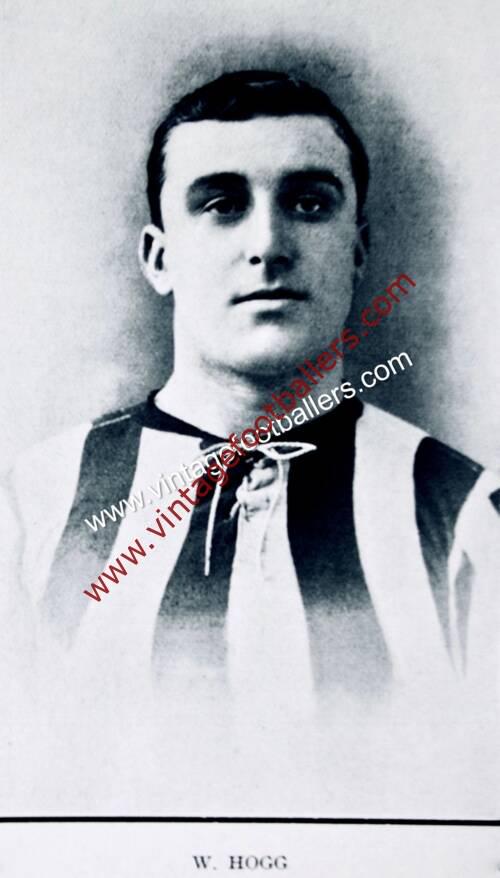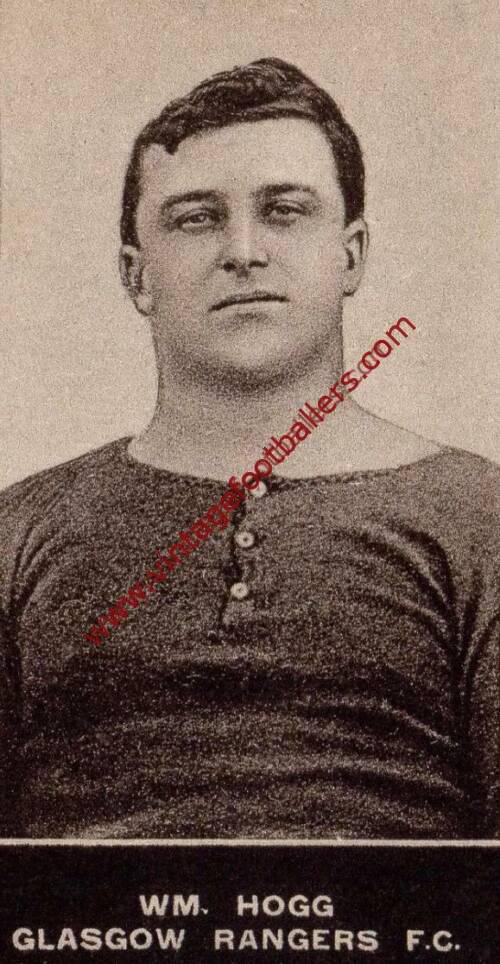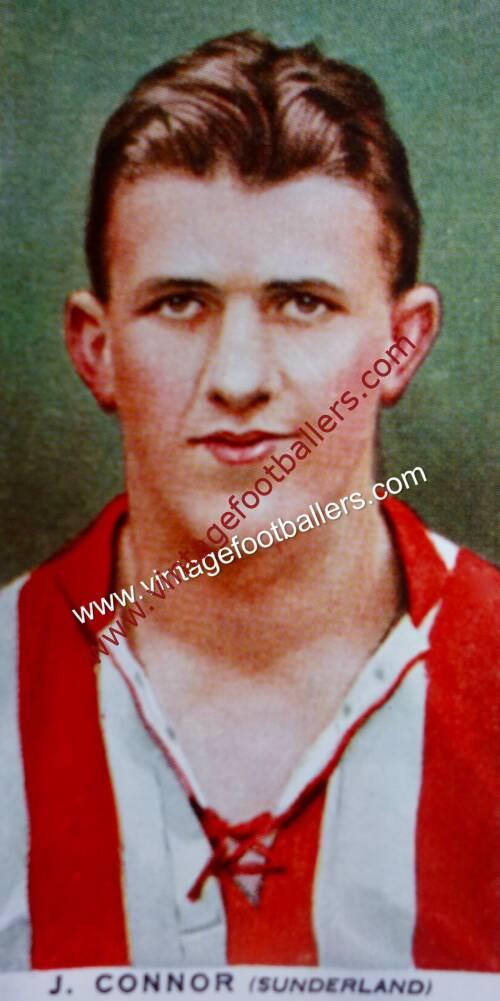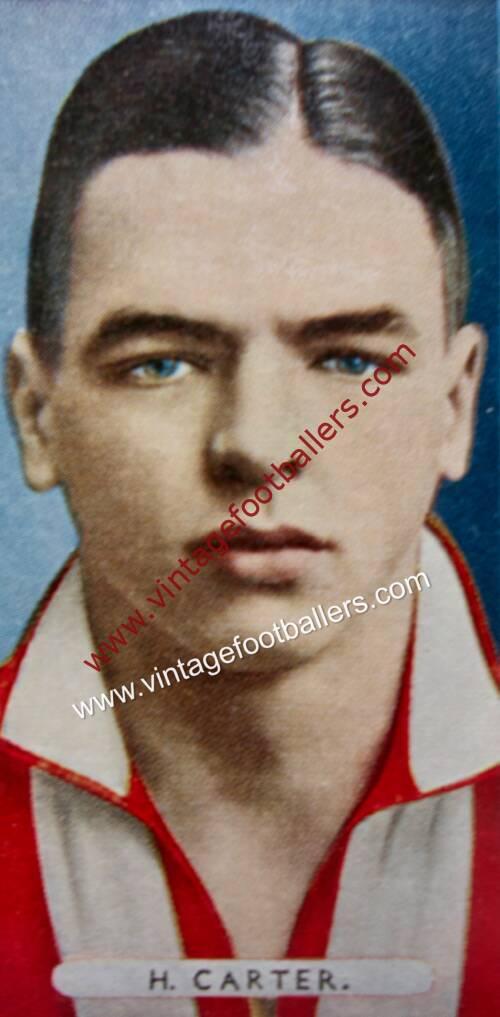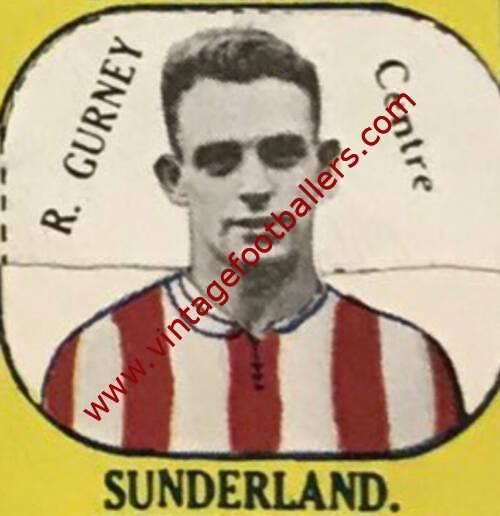Please choose your photo size from the drop down menu below.
If you wish your photo to be framed please select Yes.
Note: 16″x 20″not available in a frame.
Images can also be added to accessories. To order please follow these links
£8.95 – £49.95
Please choose your photo size from the drop down menu below.
If you wish your photo to be framed please select Yes.
Note: 16″x 20″not available in a frame.
Images can also be added to accessories. To order please follow these links
Newcastle born outside right Billy Hogg played junior football for Rosehill in 1897 and Willington Athletic in 1898 before joining First Division Sunderland, turning professional in October 1899, for whom he made his Football League debut against Notts County in December 1899, scoring in a 5-0 victory. He soon became a regular fixture in the outside-right berth and in his first season Sunderland finished third in the League Championship, with Hogg having made 22 appearances scoring 7 goals.
The following season he was ever present appearing in all 34 League matches, contributing nine goals as Sunderland finished as runners-up in the First Division. In 1901-02 Hogg missed six games, but increased his goal tally to ten for the season, as Sunderland claimed the League Championship by a three point margin over Everton.
Hogg was selected for all England’s matches in the 1902 British Home Championship, including the Ibrox Disaster match played on 5th April 1902 which was subsequently declared “void” after the collapse of a stand left 25 spectators dead. England had played poorly in their opening matches, drawing 0-0 with Wales on 3rd March 1902 and scrambling a 1-0 victory over the Irish on 22nd March. Following the Ibrox disaster, the Scotland game was relocated to Villa Park. The match was fiercely fought and ended with a 2-2 draw, sharing the points but giving the trophy to the Scots. Although never selected again for England, Hogg also made 4 appearances for The Football League.
Hogg continued to score regularly for his club, in their title defence during 1902-03 he was a regular as they finished in third place, and in 1903-04 he was the club’s top-scorer with 13 goals, mainly appearing at centre forward that season until he reverted to the right wing in September 1904, although from October 1906 he was primarily deployed at inside right. In his tenth and what proved his final season with the Roker Park club, 1908-09, he scored two hat-tricks in a fortnight, the first away to Woolwich Arsenal on 21st November with the second coming on 5th December, in a 9-1 victory at St James’ Park over local rivals Newcastle United, with the other goals coming from George Holley (another hat-trick), Arthur Bridgett (two) and Jackie Mordue. Sunderland finished the 1908-09 season in third place, with Newcastle finishing League Champions. In his ten years with Sunderland, Hogg made a total of 303 appearances in all competitions, with 84 goals.
In May 1909 he moved to Glasgow, where he joined Glasgow Rangers for a fee of £100. In his first season at Ibrox, Rangers finished third in the League, with Hogg contributing six goals from 29 appearances. In each of the next three seasons, Rangers won the Scottish League Championship with Hogg contributing 14 goals from 30 appearances in 1910-11 and 20 goals from 30 appearances in 1911-12. In each of the three Championship seasons, Rangers’ top scorer was Scotland international Willie Reid.
By 1913, injuries were beginning to limit Hogg’s appearances and he was only able to make 16 appearances (with five goals) eventually losing his place to Jimmy Paterson. Having scored 45 goals in 107 appearances for The Gers, he left Ibrox at the end of the season, spending a year with Dundee in May 1913 before accepting the position of player-manager at Raith Rovers in 1914. Following the end of the First World War he played for Montrose, Dundee and Dundee United, where he scored twice in 9 appearances in the autumn of 1921 before finally hanging up his boots. From 1922 Hogg was the trainer at Wolverhampton Wanderers and from July 1932 he was the trainer at Barnsley.
Hogg’s younger brother Jack Hogg was also a professional footballer, a half back with Sunderland, Sheffield United, Southampton and Hartlepool United. His younger son William played for Bishop Auckland and Bradford City.
NB although published in 1907, the image clearly shows Hogg wearing his England shirt.
| Weight | N/A |
|---|
